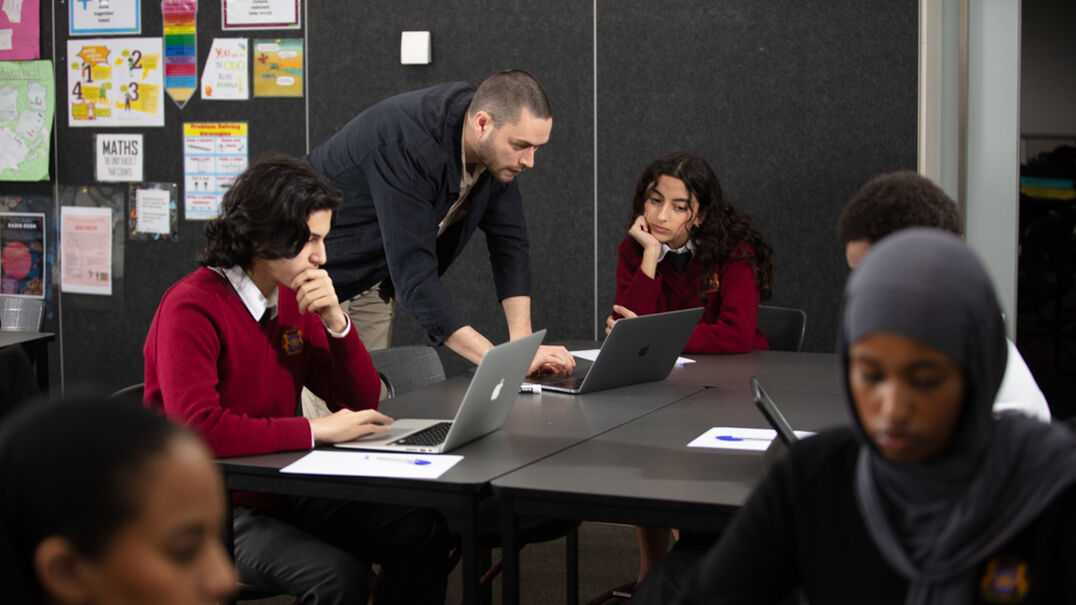Snapshot
Para Vista Primary School was established in 1968 on Kaurna Land in South Australia. It is a vibrant, diverse, and multicultural community of 200 students and 40 preschool children. Nearly 50% of students qualify for school card and over 30% speak English as an additional language. The school also has high numbers of Indigenous students and students with disability.
Para Vista commenced its professional learning with Berry Street Education Model (BSEM) in 2023 and is very much at the beginning of its journey. All staff are completing the first 3 days of the 4-day training course.
Challenges
Principal Anita Becker was appointed in 2022. Having supported her previous campus with the successfully implementation of BSEM, Anita brought a robust understanding of Berry Street’s trauma-informed, strengths-based strategies to Para Vista and had witnessed the significant impact it has on student wellbeing and learning.
One of the challenges at Para Vista was students were not regulating in break times, and this was reflected in a significant number of behaviours of concern.
Solution
The school established their own “TIPI (Trauma Informed Practice Implementation) Team” and visited the neighbouring Keller Road Primary School. It was a useful starting point to see how Keller Road Primary School have been successful in shifting their behaviour over the past 4 years, with BSEM being a valuable contributor to their success.
The introduction of consistent, predictable routines, including morning and afternoon circles, has provided the students with a positive start to each day and opportunities to reflect on ‘what went well.’ Staff are reporting increased student engagement and attendance as a result.
At the commencement of 2024 several school-determined ‘non-negotiable’ strategies were introduced, including a focus on establishing relationships, whole-school expectations, values, interoception strategies, goal-setting, and building a sense of belonging to the Para Vista community.
As a result of this agreement, the school:
- embedded morning circles, began using Ready to Learn Scales, Ready to Learn Plans, mindfulness practices, Brain Breaks, and greetings
- improved calm corners by strengthening their explicit teaching with the purpose of supporting students’ unmet needs with high expectations and co-regulation processes
- moved away from punitive disciplinary measures to focus on supporting students to regulate their bodies with bottom-up strategies.
Outcomes
At every stage of their BSEM journey the TIPI Team actively consults staff. This has assisted in supporting whole-school language and common understanding. They began with discussions about values, and worked with staff and students to unpack specific behaviours which reflect these, as depicted below. This has been a strength as the values are regularly referred to in classrooms and interactions throughout the school. Para Vista School are now ‘living their values – not just laminating them’, and the whole school is beginning to feel different as collectively they move towards positive shifts in teaching and learning.
The school decided to change lesson and break times due to students struggling to regulate, and shortened the second break. In addition, they commenced student led initiatives involving positive recognition in the form of tickets for demonstrating school values in the yard.
The benefits of these strategies were reflected in the data, which showed a 76% reduction in incidents recorded from 2022 to 2023. Currently, the data shows there are fewer students now involved in incidents, and those who are have individual support plans.
Although Para Vista Primary School is still at the early stages of its BSEM journey, staff can already see the impact BSEM is having on their school. There has been a shift into a proactive space where common language, understanding, and consistency continues to grow, while students are learning to regulate their bodies, resulting in improved learning outcomes.





